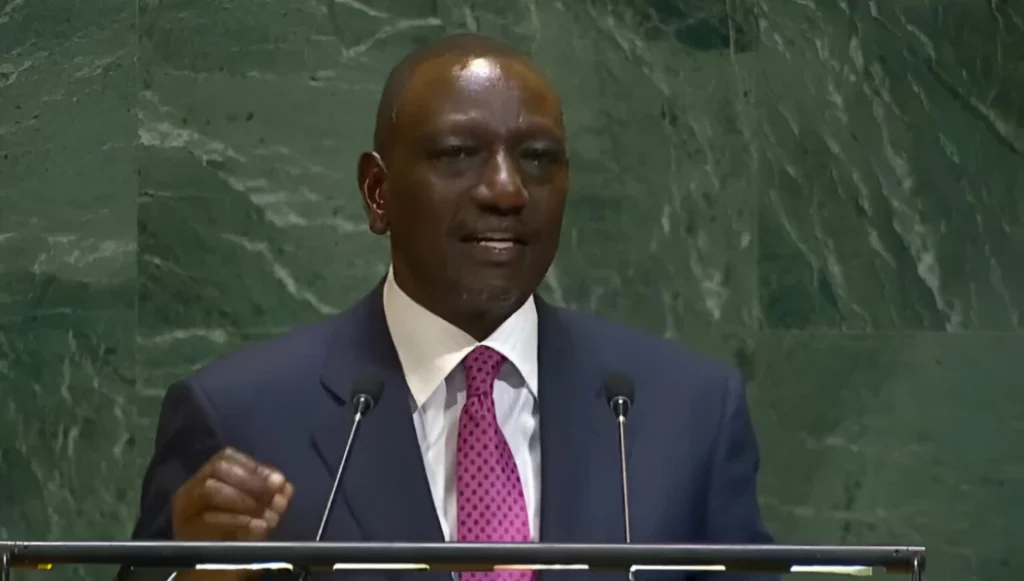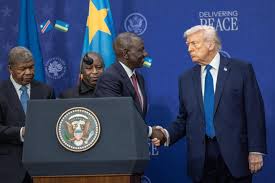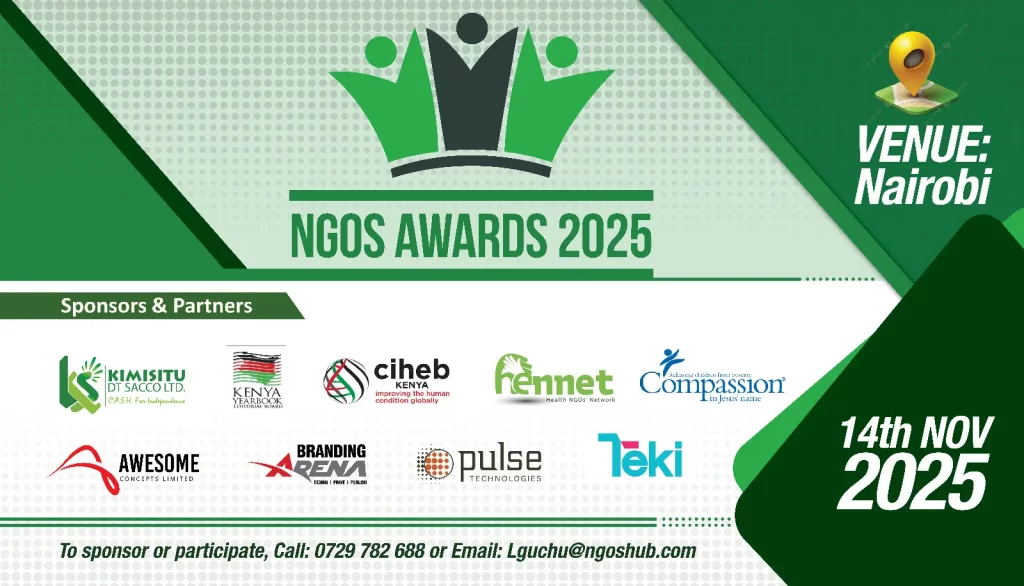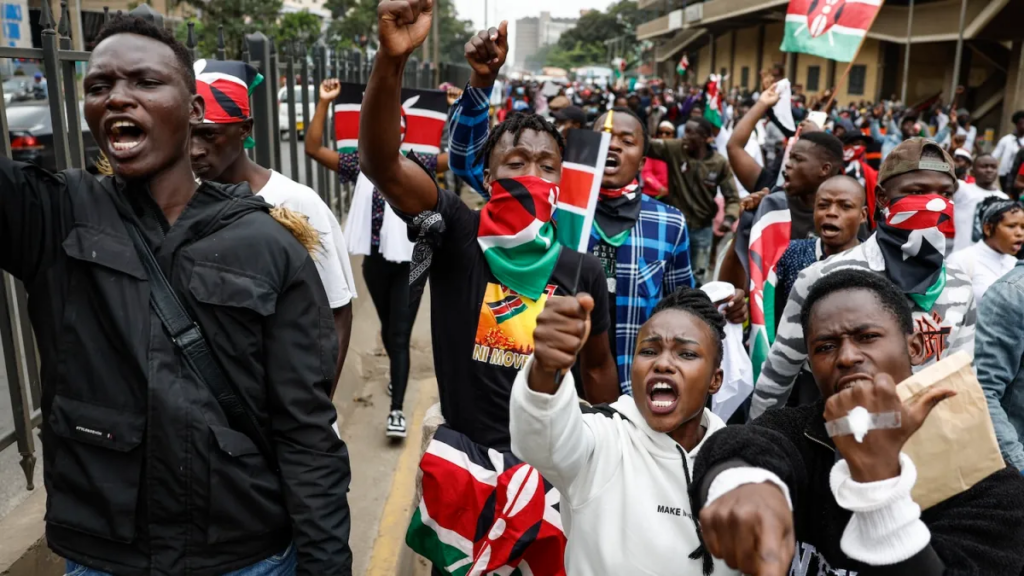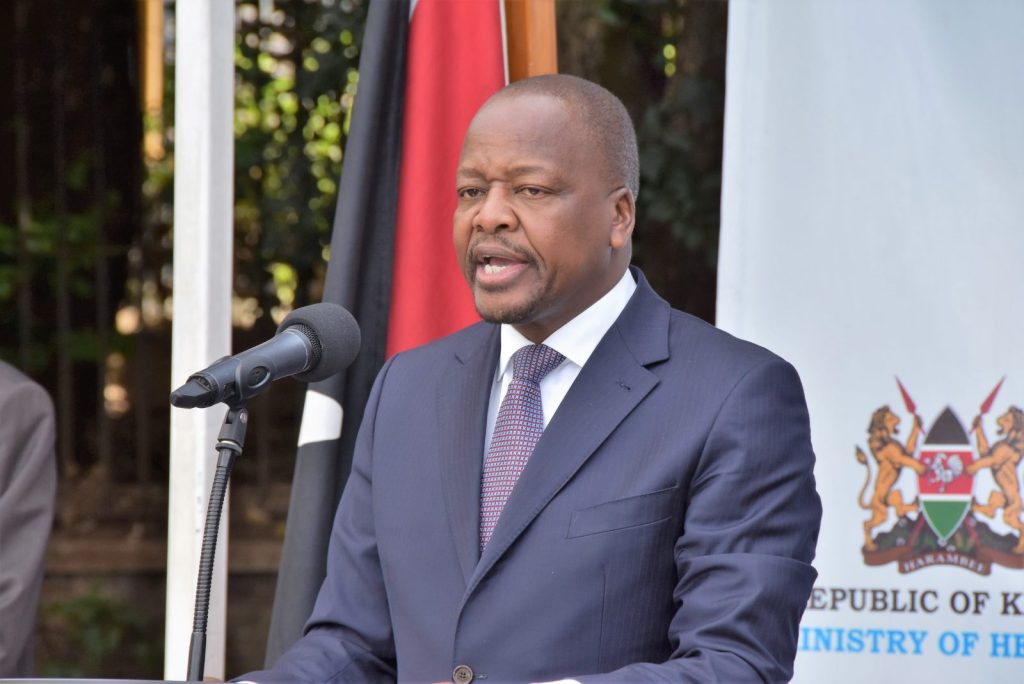By Wahome Ngatia
On a bright Friday afternoon in Nairobi, the chants of protest filled the air as Kenyan Muslims marched against Israel’s bombardment of Gaza. They carried placards, raised their fists, and recited prayers for Palestinians whose lives have been torn apart by war. For many of them, this was more than politics—it was a spiritual and moral duty, an act of solidarity with fellow Muslims under siege. But beneath the emotion on the streets lies a more complex story: Kenya’s long and carefully calibrated position on the Israeli-Palestinian conflict.
Kenya is not new to the question of Palestine. Back in 1989, Nairobi formally recognised the State of Palestine, joining a wave of Global South nations that supported Palestinian self-determination. Since then, Kenya has consistently voted in favour of measures that advance Palestinian rights at the United Nations. The most recent was in September 2025, when the UN General Assembly overwhelmingly endorsed the “New York Declaration”—a roadmap towards a two-state solution. Kenya voted “yes.”
At first glance, this might seem like an outright tilt towards Palestine. But that would be an incomplete reading of Kenya’s foreign policy. Because while Kenya raises its voice for Palestinian rights on the global stage, it also keeps a warm handshake extended towards Israel.
A Friendship Forged in History
When Kenya gained independence in 1963, Israel was among the first countries to open an embassy in Nairobi. The young nation turned to Israel for technical help in agriculture, irrigation, and health. Israeli experts trained Kenyan farmers, and Kenyan professionals flew to Tel Aviv to study under MASHAV programs.
The bond deepened through security cooperation. Kenya played a quiet but crucial role during the 1976 Entebbe hostage rescue, allowing Israeli commandos to refuel in Nairobi. In later years, Israeli teams helped Kenyan authorities after the Westgate Mall attack and in other terror crises. For a country often in the crosshairs of terrorism, such partnerships are more than symbolic—they are survival strategies.
On the economic front, Israeli firms have introduced drip irrigation systems, solar-powered pumps, and innovative water management tools that Kenyans use daily. For a drought-prone nation, these technologies are lifelines. Trade in machinery, medicine, and farming inputs has also kept the relationship tangible and beneficial.
Walking the Tightrope
So how does Kenya balance recognition of Palestine with friendship with Israel? The answer lies in pragmatism.
On one side is principle: Kenya stands with the global consensus that Palestinians deserve their own state, living peacefully alongside Israel. This position is not lip service; it is now anchored in official government policy after Nairobi codified the two-state solution into law in 2025.
On the other side is necessity: Kenya’s security and development are boosted by cooperation with Israel. No government in Nairobi can afford to throw away such a partnership, not when terrorism, food insecurity, and climate change remain urgent threats.
This tightrope walk has not been without stumbles. There have been moments when Kenya abstained on certain UN votes that sharply condemned Israel. Those abstentions, seen as hedging, provoked anger among sections of the Kenyan Muslim community and civil society, who accused the government of betraying Palestine. The pressure from the streets has been real, with religious leaders openly criticising State House for “silence” or “softness” in the face of civilian deaths in Gaza.
Yet, in official statements, Kenya has consistently called for ceasefires, protection of civilians, and the reopening of humanitarian corridors. The message has been clear: Kenya recognises Palestine, supports a two-state solution, but will not burn its bridges with Israel.
Why It Matters
For ordinary Kenyans, this balancing act may seem like distant geopolitics. But it has real implications. The food you eat, the irrigation pumps in your village, or the intelligence that prevents a terror attack—all of these are linked to Kenya’s friendship with Israel. At the same time, solidarity with Palestinians speaks to Kenya’s own history as a post-colonial state that values justice, sovereignty, and human rights.
The story of Kenya’s position on Israel and Palestine is not about choosing one side over the other. It is about survival, principle, and pragmatism in equal measure. It is about how a small African nation navigates a polarising global conflict without losing sight of its own interests or its moral compass.
The Balancing Act Continues
As Gaza burns and protests echo in Nairobi, Kenya remains firmly on the side of a two-state solution. But unlike some countries that sever ties with Israel, Kenya has chosen to keep both doors open—one to Tel Aviv, the other to Ramallah. This dual approach may frustrate activists and puzzle outsiders, but it is the essence of Kenyan diplomacy: balancing ideals with interests, justice with pragmatism.
In the end, Kenya’s voice may not silence the guns in Gaza or resolve the world’s most stubborn conflict. But its stance reminds us that foreign policy is rarely about absolutes. It is about navigating grey zones, where principle and pragmatism must coexist. And that is a lesson Kenyans—living in a nation built on both survival and solidarity—can relate to.

